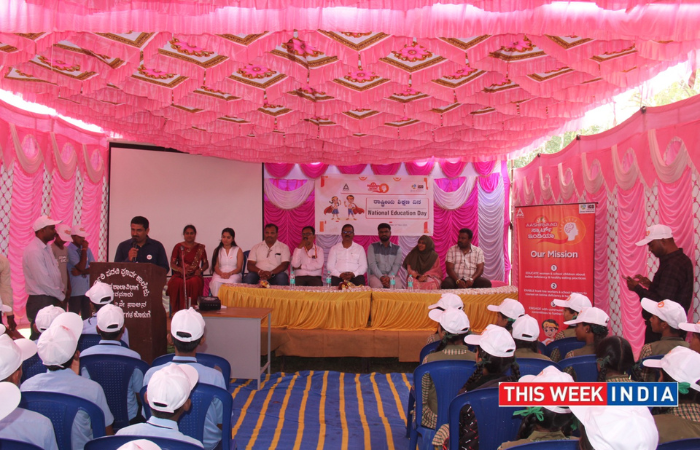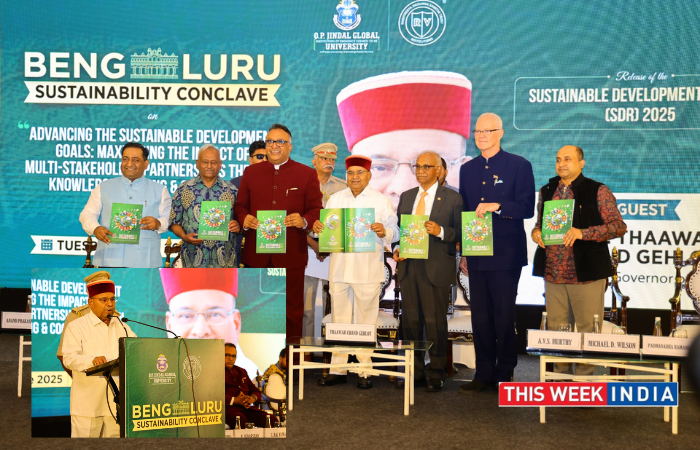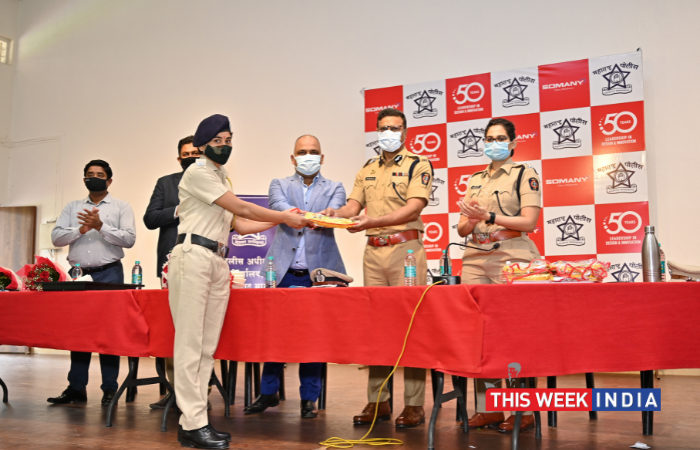SHARE OF MANUFACTURING IN INDIA’S GDP WILL INCREASE TO 20% – BCIC MANUFACTURING CONCLAVE
Karnataka Government’s Framework Targets Key GDP-Boosting Sectors: Gunjan Krishna, IAS
Explore opportunities in sunrise sectors; adopt sustainable practices.
Bengaluru 8th December 2023: Technology Driven Manufacturing for Growth and Prosperity with a focus on affordable digitization and automation, home grown technology, sustainability and Innovation & Emerging Manufacturing Technologies and scope & opportunities for economic growth through manufacturing in Karnataka was the focus of the BCIC Manufacturing Conclave that was held in the city today. Leaders from the manufacturing industry, academia and representatives from the government deliberated on the measures needed to boost manufacturing in Karnataka and the importance of adopting sustainable practices.
In her special address, Smt. Gunjan Krishna, IAS, Commissioner for Industrial, Development & Director Industries & Commerce, Government of Karnataka, said, “The world is at an inflection point, experiencing significant changes, especially after COVID. The pandemic accelerated existing changes, presenting us with fourfold challenges which are also opportunities. Firstly, we need to address climate change and global warming, we need to minimize environmental impact in our manufacturing processes. The second challenge involves navigating geopolitical dynamics and seizing opportunities amid global uncertainties. Currently China +1 is gaining in prominence and a lot of investment is going to South-East Asia, it’s crucial for us to work together to capitalize on these openings. The third challenge revolves around the increasing use of AI in global manufacturing. While advanced countries move towards robotics, in a country like India with a vast population, balancing AI adoption with employment generation is critical. AI presents not just a workforce challenge but also immense entrepreneurial opportunities. The fourth challenge stems from global demographic shifts. Aging populations in some countries create opportunities for us if we can provide competitive manufacturing solutions. However, we must be vigilant and innovative, as industries seek efficient and automated processes.”
“The government of Karnataka has created a framework, focusing on three broad sectors with the most significant value addition to the GDP i.e. electronic component manufacturing, aerospace and defense, and employment-intensive sectors like textiles and electronics manufacturing. To facilitate growth, the government emphasizes the importance of emerging technologies and the need for skilled workers. Ensuring a balance between technological advancement and employment opportunities, especially for the young and growing population, is crucial. The government is also working on improving industrial infrastructure, offering plug-and-play facilities, and streamlining logistic processes to enhance efficiency and reduce costs. Access to finance, technology, and efficient supply chains will be critical for the growth of Micro, Small, and Medium Enterprises (MSMEs).” Smt. Gunjan Krishna, added
In his presidential address, Dr. S Devarajan, President, BCIC & Sr. Vice President, TVS Motor Company said “India has the capacity to achieve a growth rate ranging from 8-10% by the year 2030, with the primary driver being the manufacturing sector, particularly the MSME segment. Serving as the backbone of economic activity, the manufacturing industry in India is showing signs of revival after consecutive quarters of subdued growth. Automation plays a pivotal role in the sector’s success, but its adoption in India remains low and requires immediate attention. It is imperative to address this issue urgently. A holistic approach encompassing product, process, and sustainability is essential. Efforts should be directed towards enhancing energy efficiency and implementing a circular economy in our processes.”
In his address, Mr. L Krishnan, Managing Director, Taegutec India, said, “There is a prevailing sense of positivity and optimism surrounding the manufacturing sector. Presently, India stands as the world’s second most coveted manufacturing destination, and manufacturing contributes approximately 16-17% to the country’s GDP. The significance of manufacturing is underscored by the potential for substantial economic growth, with projections indicating that its share can rise to 20%. In terms of exports, the government has set an ambitious target of achieving USD $8.3 trillion by 2047. To realize this goal, it is imperative to add value to our exports, with manufacturing serving as the key gateway. Despite the immense opportunities at hand, it is crucial not to take them for granted. Policymaking and reform efforts are underway, with the government moving in the right direction. However, the industry must also play a proactive role by planning, preparing, and performing, while embracing a sustainable approach across product, process, and people.”
In his keynote address Mr. T K Ramesh, Managing Director, Ace Designers Ltd said, “MSMEs in India need to be more robust and sustainable. Karnataka has a huge potential with the platform for progress already in place with around 10 million registered MSMEs that are established in machine tools, aeronautics & aerospace, healthcare, automobile, defense research & equipment and infrastructure. This now should be augmented with MSMEs in sunrise sectors such as medical, electronics and semiconductors.
Mr. G Prakash, Chairman, Manufacturing Expert Committee, BCIC Chief Operating Officer – Ace Designers Ltd. delivered the welcome address and set the context for the event.









